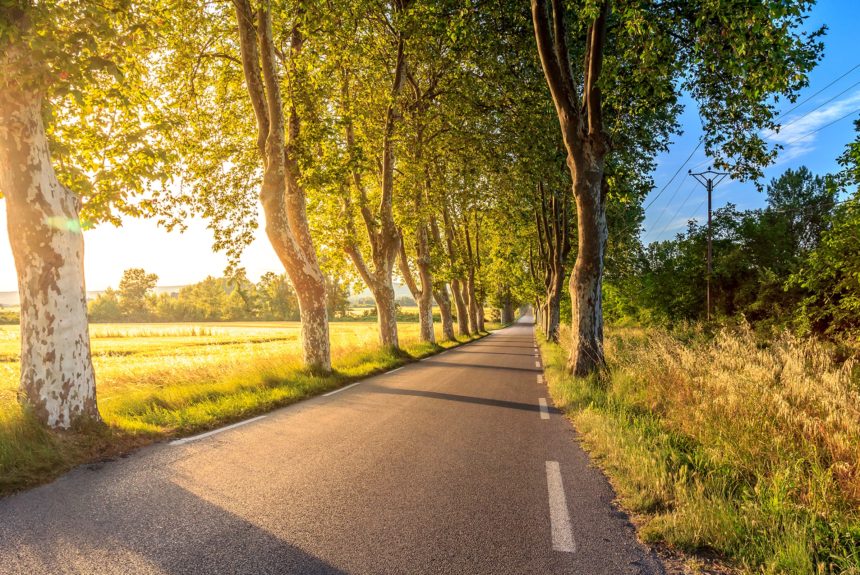Can roads made of plastic provide an answer to the mountain of U.S. plastic waste being created every day? Increasingly, road builders are confident that a quiet transformation of the road construction sector worldwide is taking place.
The concept of plastic roads originated in India. Dr. R. Vasudevon of the Thiagarajar College of Engineering in Tamil Nadu noticed the sheer amount of plastic waste being created and then discarded. While investigating alternative uses for plastic, he discovered and patented a construction system using melted shredded plastic added to bitumen, which results in a highly durable road surface. One of the first plastic roads was built at Jambulingam Street in Chennai in 2002 and has proved extremely durable with no evidence to date of potholes, rutting, or flaws along the edges. The method has been so successful that it is now the Indian Government’s preferred method of city road construction.
Other innovators were quick to note the new process, with plastic roads beginning to appear worldwide. U.K-based road builder, MacRebur, has devised a way of adding granulated waste plastic into an asphalt road mix, constructing roads throughout the U.K., New Zealand, Australia, South Africa, California, Turkey, Bahrain, and Slovenia.
In the Netherlands, PlasticRoad has created plastic bike paths, roads, parking spaces, and the road entrance to a theme park. Its most recent development has been an inspection path beside a rail track designed to counter flooding while experimenting with modular and circular construction.
The amount of waste plastic used in creating these surfaces is considerable. MacRebur states that for each kilometer of road laid down, the company uses the equivalent of more than 740,000 single-use plastic bags. A 30-meter bike path created by PlasticRoad in Zwolle, Netherlands, used recycled plastic equivalent to 218,000 plastic cups, while a project in the Chapultepec Forest near Mexico City used over 10,000 kilograms of plastic waste.
None of the construction methods involve any risk of releasing microplastics into the environment. PlasticRoad points out that they only use 100% polypropylene plastic which contains no hazardous components.
Plastic roads may be a relatively new industry, but its participants are intent on rapid expansion. Netherlands-based PlasticRoad intends to roll out its product portfolio worldwide. At the same time, MacRebur, in a statement, said it “plans to wake the world up to the waste plastic epidemic and let people know about our solution.”
The U.S. is being targeted for such growth. MacRebur has just announced plans to open a manufacturing subsidiary in Florida, and more manufacturing licensing agreements (MLA’s) are being put into place. One such agreement in Southern California has been active since 2019.
Toby McCartney, the MacRebur CEO, believes that plastic roads could definitely provide a major solution to U.S. waste problems. He says, “The U.S. is at a crisis point for its plastic waste, and we’re ready to offer a solution. Plastic packaging is a huge problem in the U.S., with 80 million tons of waste produced each year. The U.S. has around 4,071,000 miles of roads, so as we see it, MacRebur products could be the single biggest solution to the U.S. plastics problem.”
Angela Youngman is a long established freelance journalist and author based in the UK specialising in business, sustainability, travel, tourism, leisure, food & drink.
The views and opinions expressed are those of the author’s and do not necessarily reflect the official policy or position of C3.
